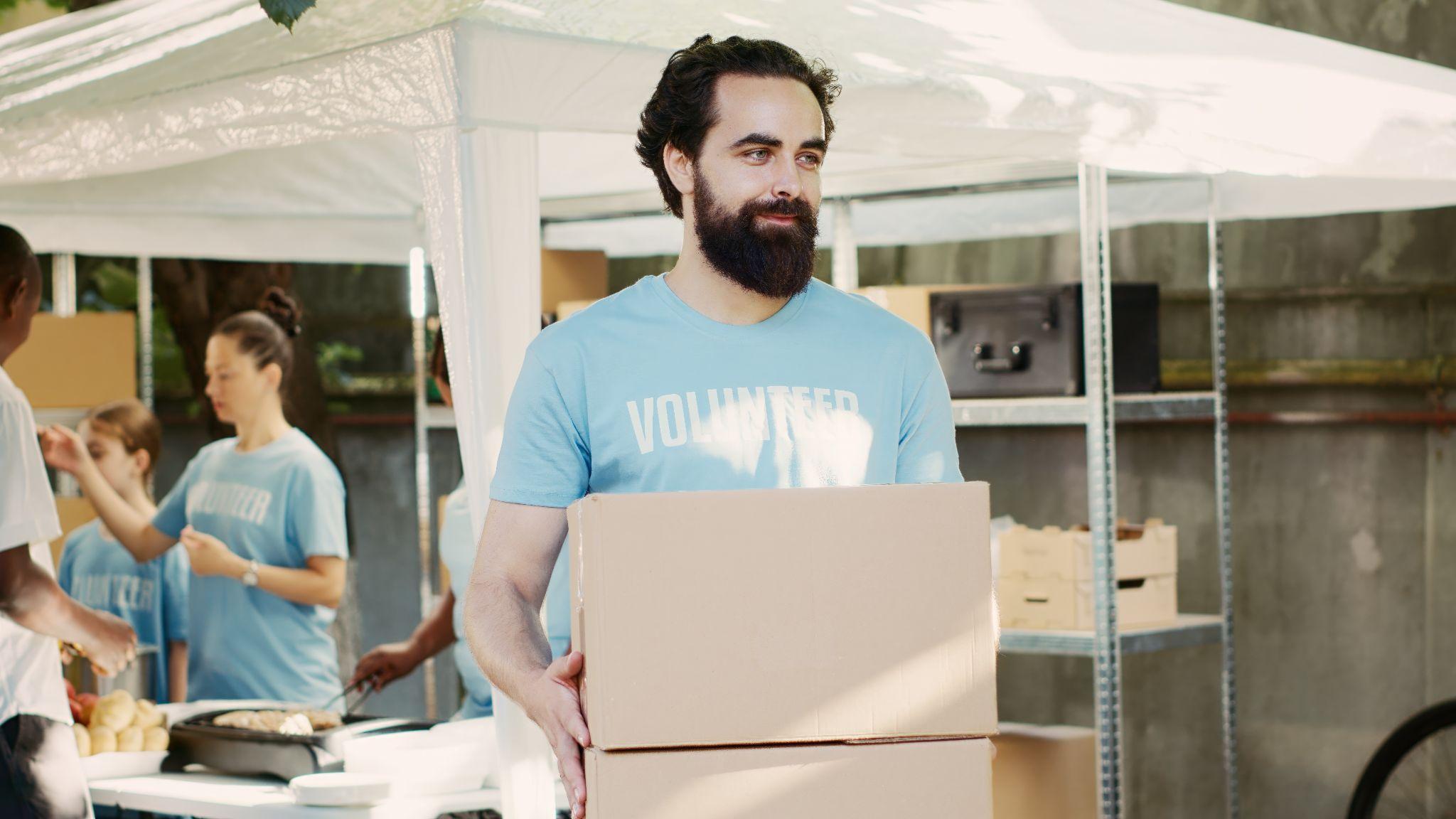
Our Addiction Resources
Navigating the world of addiction and recovery can be overwhelming. We’re here to provide clear, compassionate education and guidance. From practical advice for maintaining sobriety to informational guidance on the long-term effects of substance abuse, our content is a beacon of hope and understanding.
Our Team is Ready are ready to take your call
Call us Today!
or we can call you. Fill out form below
Our Blog

Understanding the Cycle of Addiction
What is addiction? Addiction is a chronic, complex, and often misunderstood condition that affects millions of people worldwide. It’s a brain disease that alters functioning and behavior.
For those struggling with a substance use disorder or their loved ones, understanding the stages of the addiction cycle can be a crucial step toward recovery.
Recognizing these stages and risk factors can help individuals identify their patterns and take steps toward recovery.
What Is the Cycle of Addiction?
The cycle of addiction refers to the repetitive pattern of behavior that individuals with addiction to drugs or alcohol go through. It’s characterized by a series of stages that can occur in a short period of time or take years to develop.
These stages lead to a compulsive use of substances or engagement in addictive behaviors, despite negative consequences. This cycle can be difficult to break, but understanding its components can help individuals recognize their patterns and take steps toward recovery.
The Stages of the Cycle of Addiction
Addiction is a progressive condition that develops over time, often going unnoticed until it becomes severe. By understanding the specific stages of the cycle of addiction, individuals and their loved ones can better recognize the warning signs and seek help earlier.
1. Initial Use
The cycle often begins with the initial use of a substance or behavior. This might happen due to curiosity, peer pressure, stress relief, or the pursuit of pleasure. During this stage, the individual experiences the effects of the substance or behavior, which can be positive, neutral, or negative.
Individuals find some form of physical or mental reward or relief from the initial use, which can create a powerful memory associated with the substance or behavior.
2. Abuse
If the initial use is perceived as pleasurable or effective in relieving stress, the individual may start using the substance or engaging in the behavior more frequently.
This stage is characterized by increased use and the onset of negative consequences, such as problems at work, school, or in relationships. The individual may start prioritizing the substance or behavior over other activities and responsibilities, leading to substance abuse.
3. Tolerance
As the individual continues to use the substance or engage in the behavior, their body begins to build tolerance. This means they need to consume more of the substance or engage in the behavior more frequently to achieve the same effect. Tolerance can lead to increased consumption and a greater risk of negative consequences.
Tolerance occurs as the brain and body adapt to the presence of the substance. For example, someone who drinks alcohol regularly will need to drink more to feel the same level of intoxication they once did with smaller amounts. This increased consumption can accelerate the onset of more serious health and social problems.
4. Dependence
At this stage, the individual’s body and mind become dependent on the substance or behavior. Dependence can be physical, psychological, or both. Physical dependence means the body has adapted to the substance, and stopping use will result in withdrawal symptoms. Psychological dependence involves a mental or emotional need for a substance or behavior to cope with everyday life.
Physical dependence is characterized by withdrawal symptoms when the substance is not used. These symptoms can vary depending on the substance but often include physical discomfort, pain, and cravings. Psychological dependence is marked by an intense desire to use the substance or engage in the behavior to deal with stress, anxiety, or other emotional issues.
5. Addiction
Addiction is marked by the compulsive use of a substance or engagement in a behavior, despite knowing the negative consequences. The individual may feel powerless to stop and continue using or engaging in the behavior, even when it causes significant harm to their health, relationships, and other areas of life.
At this stage, the individual may have tried to quit multiple times but found themselves unable to do so. The substance or behavior has taken over their life, and they may engage in risky or harmful activities to obtain or use the substance. The negative consequences are severe and pervasive, affecting all aspects of the person’s life.

Breaking the Cycle of Addiction
Breaking the cycle of addiction is challenging, but it is possible with the right support and strategies. Here are some steps to help individuals overcome addiction:
The first step in breaking the cycle of addiction is acknowledging the problem. This can be difficult, as denial is a common part of addiction. However, recognizing that there is an issue and that help is needed is crucial for recovery.
Professional help is often necessary to break the cycle of addiction. This can include therapy, counseling, and support groups. Addiction treatment programs, such as those offered by Lumina Recovery, provide a structured environment and comprehensive support to help individuals plan their recovery and overcome addiction.
Learning healthy coping strategies is essential for dealing with triggers and stressors that contribute to addiction. This can include mindfulness, exercise, and hobbies that provide a positive outlet for emotions and stress.
Having a strong support system of friends, family, and peers who understand the challenges of addiction can make a significant difference in recovery. Support groups and peer counseling can also provide valuable encouragement and accountability.
Establishing a new, healthy routine can help individuals avoid the triggers and habits associated with their addiction. This might involve setting new goals, finding new hobbies, and creating a daily schedule that promotes wellness and stability.
Long-term recovery is a process that requires commitment and effort. Continued participation in therapy, support groups, and healthy activities can help individuals maintain their sobriety and prevent relapse. It’s also important to recognize and address any underlying issues, such as mental health disorders, that may contribute to addiction.
Take the First Steps Towards Recovery With Lumina Recovery
Understanding the cycle of addiction is the first step toward breaking free from its grip. By recognizing the stages and taking proactive steps to seek help, develop coping strategies, and build a support system, individuals can overcome addiction and lead healthier, more fulfilling lives.
At Lumina Recovery, we are committed to providing the necessary addiction treatment programs to help individuals achieve long-term recovery from a range of addiction types including but not limited to alcohol, prescription medications, and opioids.
If you or a loved one is struggling with addiction, reach out today for the help you need.


What Is Outpatient Addiction Treatment?
Outpatient substance abuse treatment offers a flexible recovery option for those battling addiction, allowing individuals to receive therapy and support while maintaining daily routines. Intensive outpatient treatment provides effective support without the need for residential care, making it a convenient and accessible choice for many. What is outpatient treatment, exactly? Our helpful infographic below answers this question and explores how it compares to inpatient treatment, and who can benefit most from outpatient programs.
At Lumina Recovery, we believe there’s no one-size-fits-all journey to sobriety. That’s why we offer a range of outpatient services designed to meet the unique needs of each individual. Our intensive outpatient program (IOP) is ideal for those who require a structured and supportive environment but do not need full-time residential care. With an IOP, clients can engage in therapy sessions and support groups while continuing to live at home or in a sober living facility.
For individuals needing a higher level of care, our partial hospitalization program (PHP) provides comprehensive treatment during the day while allowing clients to return home or to a sober living facility in the evening. PHP offers an intensive therapeutic experience, combining various forms of therapy, counseling, and medical supervision to address the complexities of addiction.
Recognizing the importance of accessibility and convenience, we also provide telehealth services as part of our outpatient offerings. Telehealth allows clients to participate in therapy and counseling sessions from the comfort of their own homes, making it easier for those with busy schedules or mobility issues to access the care they need.
Lumina Recovery’s outpatient programs are designed with flexibility in mind, enabling clients to maintain their work, school, and family responsibilities while receiving the support necessary for a successful recovery. Our personalized treatment plans ensure that each patient receives the care tailored to their specific needs and circumstances.


Breaking the Habit: 7 Things to Do When You Would Normally Drink
Alcohol addiction recovery is a journey filled with challenges, one of the most significant being the need to break old habits. Drinking often becomes entwined with various aspects of daily life, making it difficult to separate the act of drinking from the activities and emotions associated with it.
Understanding and addressing these associations is crucial for successful recovery, and finding practical alternatives can help break the cycle.
The Habit of Drinking
Drinking alcohol can become a deeply ingrained habit, intertwined with various aspects of life. For many, it is not just about the physical act of drinking but also about the contexts in which drinking occurs.
Many people use alcohol as a sleep aid, believing it helps them fall asleep faster. However, alcohol disrupts sleep quality and can lead to long-term sleep problems.
Social gatherings, parties, and celebrations often involve alcohol, making it challenging to stay sober in these settings. The presence of alcohol at these events can make it difficult for individuals to resist the temptation to drink.
Traveling can be a trigger for drinking, especially if it involves leisure activities or stress. Many people associate vacations and trips with relaxation and indulgence, often leading to increased alcohol consumption.
Holidays are often associated with festive drinking, making them particularly challenging times to stay sober. The social pressure to drink and the association of alcohol with holiday celebrations can make it hard to avoid drinking during these times.
7 Alternatives to Drinking
Finding healthy alternatives is essential for breaking the habit of drinking every night. Here are some ideas to help you replace drinking with more beneficial activities:
- Exercise: Physical activity can be a great way to relieve stress and improve your mood. Whether it’s a walk, a workout at the gym, or a yoga class, find an activity you enjoy. Regular exercise can also help you sleep better and reduce cravings for alcohol. This is a practical alternative to drinking alcohol, offering both physical and mental health benefits.
- Hobbies: Engaging in sober hobbies that keep your hands and mind busy is a great way to avoid the urge to drink. This could include painting, gardening, playing a musical instrument, or cooking. Hobbies can provide a sense of accomplishment and pleasure, helping to fill the void left by alcohol.
- Socialize Sober: Seek out sober social events or groups. Many communities offer sober meetups, support groups, and activities where alcohol is not a focus. Building a network of sober friends can provide support and accountability, making it easier to stay on track.
- Mindfulness and Relaxation: Practice mindfulness, meditation, or other relaxation techniques to stay in the present moment and help manage stress and cravings. Apps like Headspace or Calm can provide guided sessions. Learning to relax without alcohol is a crucial part of adjusting bad drinking habits and can significantly improve your mental well-being.
- Healthy Eating: Focus on improving your diet by incorporating more fruits, vegetables, and whole grains. Preparing and enjoying nutritious foods can become a new, positive routine that replaces the time you used to spend drinking.
- Creative Outlets: Engage in creative activities such as writing, drawing, or crafting. These activities can be therapeutic and offer a productive way to express emotions and reduce stress.
- Volunteer Work: Volunteering for a cause you care about can provide a sense of purpose and fulfillment. It can also help you build new social connections and occupy your time in a meaningful way, reducing the temptation to drink.

Breaking the Habit
Breaking the habit of drinking every night requires effort, persistence, and support. Here are some additional tips to help you on your journey:
- Set goals. Establish clear, achievable goals for your sobriety. Celebrate your milestones, no matter how small. Whether it’s a week, a month, or a year sober, recognizing your progress can provide motivation to continue. Setting specific goals helps you focus on how to break the habit of drinking alcohol every evening.
- Stay connected. Maintain connections with supportive friends, family, or support groups. Sharing your experiences can provide encouragement and accountability. Joining a support group like Alcoholics Anonymous (AA) can provide a sense of community and shared understanding.
- Seek professional help. If you find it difficult to break the habit on your own, consider going to therapy or seeking a counselor who specializes in addiction recovery. Professional guidance can provide you with tailored strategies and support for stopping bad drinking habits.
- Develop a routine. Establish a daily routine that does not include alcohol. Plan your day with activities and commitments that keep you busy and engaged, reducing the likelihood of turning to alcohol out of boredom or habit.
- Avoid triggers. Identify and avoid situations, people, or places that trigger the urge to drink. Developing strategies to cope with triggers, such as deep breathing or calling a supportive friend, can help you stay on track.
- Focus on the positives. Remind yourself of the benefits of sobriety. Improved health, better relationships, and increased energy are just a few of the positive changes you can experience. Keeping a journal of these benefits can serve as a powerful reminder of why you chose to stop drinking.
- Practice self-care. Make self-care a priority by engaging in activities that nurture your body and mind. This could include taking regular breaks, getting enough sleep, treating yourself to a spa day, or simply enjoying a hobby that makes you happy. Self-care can help reduce stress and prevent relapse.
Break Bad Habits With Support From Lumina Recovery
Breaking the habit of drinking is a crucial part of the recovery process. By understanding the triggers and associations with drinking, and by finding healthy alternatives and support, you can successfully navigate the challenges of sobriety.
Lumina Recovery’s alcohol addiction treatment program and therapy options provide essential tools and support you need to achieve and maintain a sober life.
Reach out today to learn more about how our addiction specialists can help you or a loved one.

Celebrate the Fourth of July Sober
The 4th of July is a time for celebration, marking the nation’s independence with fireworks, barbecues, and gatherings with friends and family. However, for those dealing with addiction to alcohol or drugs, or people who support those in recovery, this holiday can bring unique challenges.
The prevalence of alcohol at many 4th of July events can make it difficult to stay sober. Knowing the potential challenges, how to avoid them, and sober activities to celebrate Independence Day can make this holiday a lot less stressful for those working on their sobriety.
Potential Challenges and How to Avoid Them
Navigating the 4th of July while staying sober can present unique challenges for those in recovery. Social pressure, emotional stress, and environmental triggers are common obstacles, but with careful planning and strategies, they can be effectively managed.
Social Pressure and Triggers
One of the most significant challenges for those in recovery during the 4th of July is social pressure. Friends and family might offer drinks or assume that everyone wants to partake in alcoholic beverages. Additionally, certain triggers, such as being around people who are drinking or visiting places associated with past substance use, can increase the temptation to relapse.
How to Avoid Social Pressure and Triggers:
Communicate your sobriety with close friends and family before the event. Let them know about your commitment to staying sober and ask for their support.
Prepare non-alcoholic beverages that you enjoy. Having a drink in hand can help you feel included and reduce the chances of being offered alcohol.
If you find yourself in an uncomfortable situation, plan an exit strategy. This could involve driving yourself to the event so you can leave when needed or having a trusted friend ready to support you.
Emotional Stress
Holidays can often bring up past memories or emotional stress, particularly if previous celebrations involved substance use. This stress can be a trigger for relapse.
How to Manage Emotional Stress:
Engage in mindfulness techniques, such as deep breathing, meditation, or yoga, to stay grounded and present.
Don’t hesitate to contact your support network, whether it’s a sponsor, therapist, or supportive friend. Sometimes, just talking about your feelings can make a significant difference.
Keeping occupied with fun sober activities can help distract you from cravings and reduce stress.
Environmental Triggers
Being in environments where alcohol is readily available can be a significant challenge. Events like barbecues or parties often involve drinking, which can create a high-risk situation for those in recovery.
How to Avoid Environmental Triggers:
Choose your environment wisely and opt for events where alcohol isn’t the main focus. Look for family-friendly celebrations or community events that offer a sober environment.
By hosting your own celebration for the 4th of July, you can control the environment and ensure it’s a safe and supportive space for you, your loved ones, and sober friends.
6 Sober Activities to Celebrate the 4th of July
Staying sober during the 4th of July doesn’t mean you have to miss out on the fun. There are plenty of activities that can make your celebration enjoyable without involving alcohol. Here are tips for a sober and memorable 4th of July:
1. Fireworks and Light Shows
Watching fireworks is an essential 4th of July activity. Many communities host spectacular fireworks displays that you can enjoy with friends and family. Plan ahead to find the best viewing spots, whether it’s a local park, beach, or even from your own backyard.
Bring blankets, snacks, and non-alcoholic beverages to create a cozy and enjoyable atmosphere. To make it even more special, you could bring sparklers or glow sticks for added fun.
2. Barbecue and Potluck
Hosting a barbecue or potluck is a great way to gather friends and family for a festive meal. Focus on the food and great company rather than alcohol. Encourage guests to bring their favorite dishes and non-alcoholic beverages.
You can even set up a DIY summer mocktails bar with ingredients like fresh fruit juices, sparkling water, and herbs for everyone to create their own refreshing beverages. To keep everyone entertained, organize outdoor games such as cornhole, frisbee, or a water balloon toss.

3. Outdoor Adventures
Start the day by taking advantage of the summer weather by planning an outdoor adventure. Whether it’s a hike, a day at the beach, a picnic in the park, or a bike ride, engaging in physical activities can boost your mood and provide a natural high without the need for substances.
Pack a picnic with healthy snacks and plenty of water, and spend the day exploring nature with friends or family. If you’re near a body of water, consider kayaking, paddleboarding, or swimming for an extra dose of fun.
4. Movie Marathon
If you prefer a quieter celebration, consider hosting a movie marathon with patriotic films or your favorite summer blockbusters. Stock up on popcorn, snacks, and your favorite non-alcoholic drinks, and invite friends over for a relaxing and enjoyable evening.
You could also choose a theme, such as classic American films, and create a cozy movie-watching environment with blankets and pillows.
5. Creative Projects
Engage in creative projects that celebrate the holiday. This could include making 4th of July-themed crafts, baking patriotic treats, or decorating your home. These activities can be a fun way to express your creativity and enjoy the holiday spirit without involving alcohol.
You could organize a craft party with friends or family, where everyone can create their own decorations or patriotic artwork. Baking can also be a delightful way to spend time, with endless possibilities for festive desserts like red, white, and blue cupcakes or flag-themed cookies.
6. Host a Sober Party
Throwing a sober party is a great way to ensure a safe and supportive environment for celebrating the 4th of July. Plan activities such as board games, charades, or karaoke to keep guests entertained.
Create a festive atmosphere with decorations, music, and delicious non-alcoholic beverages. You can also incorporate themed activities like a patriotic trivia quiz or a DIY photo booth with fun props. By hosting your own party, you can set the tone for a fun and sober celebration.
Find Sober Support With Lumina Recovery
Celebrating the 4th of July sober might present some challenges, but with the right strategies and mindset, it can be a joyful and fulfilling experience. By planning ahead, choosing supportive environments, and engaging in sober activities, you can enjoy the holiday while staying true to your recovery journey.
Lumina Recovery has the tools and resources, including telehealth and outpatient options, for those working on their sobriety. Remember, you never have to go through this journey alone.
Reach out to us today for the tools and resources you need to celebrate every milestone and holiday sober.

How to Fall Asleep When Sober: Sleep Hygiene & Sobriety
Falling asleep can be challenging, especially when you’re on the path to sobriety from substance abuse or alcohol addiction. If you experience sleep disruptions and can’t sleep without alcohol or other substances, transitioning to a sober lifestyle might make bedtime feel like a battleground.
But good sleep hygiene and practical tips can make this transition smoother. If you or a loved one is struggling with insomnia during sobriety, knowing strategies to improve your deep sleep without the assistance of drugs or alcohol can be life-changing.
9 Tips for Better Sleep Without Substances
Many people working on sobriety from a substance or alcohol use disorder experience insomnia or disrupted REM sleep, which can be frustrating and disheartening. Adjusting to a new sleep routine without relying on the effects of alcohol or drugs can take time and effort.
However, there are many effective strategies you can try to improve your sleep quality naturally. Here are some practical tips to help you fall asleep and stay asleep without using substances or drinking before bed.
1. Have a Calming Bedtime Routine
Creating a peaceful routine before going to sleep can tell your body that it’s time to start winding down. Start by identifying activities that help you relax. Reading a book is a great way to escape into another world and leave behind the day’s stresses.
Taking a warm bath can help your body relax by lowering your core temperature, signaling to your brain that it’s time to sleep. Gentle yoga or stretching exercises can also help ease tension in your muscles and promote relaxation.
2. Make Your Sleep Environment Comfortable
Your bedroom should be a sanctuary for quality sleep. Begin by ensuring your mattress and pillows suit your comfort preferences, whether you need firm support or a plush feel.
The room’s temperature plays a significant role in your ability to fall asleep and stay asleep. A cooler environment, around 65-68 degrees Fahrenheit, is generally ideal.1
Darkness is another critical factor. Blackout curtains can help block out light from street lamps or early morning sun.
3. Limit Screens Before Bed
The blue light produced by phones, electronics, and computers can interfere with your body’s natural sleep-wake cycle, known as the circadian rhythm. This light suppresses melatonin production, a hormone that regulates sleep.2
To counter this, try to avoid screens at least an hour before bedtime. If you need to use your devices, consider using blue light filters or night mode settings that reduce blue light emission. Engaging in screen-free activities, like reading a physical book, writing in a journal, or listening to soothing music, can help signal to your brain that it’s time to wind down.
4. Be Aware of Your Diet
What you eat and drink can significantly affect your sleep. Caffeine and nicotine are stimulants that can have a negative impact on your sleep, so it’s best to avoid them in the hours leading up to bedtime.
Large meals can cause discomfort and make it harder to fall asleep, so try to finish eating at least two to three hours before you plan to sleep. However, going to bed hungry can also disrupt your sleep.
If you need a snack, choose something light and sleep-promoting, like a banana, which contains magnesium and potassium that can help relax muscles, or a small serving of almonds, which contain melatonin.

5. Incorporate Physical Activity
Physical activity increases the amount of time you spend in the deep, restorative stages of sleep. Aim to include at least 30 minutes of moderate aerobic activity, such as walking or cycling, most days of the week. Strength training exercises are also beneficial.
However, avoid vigorous exercise close to bedtime, as it can have the opposite effect and make it harder to fall asleep. Morning or early afternoon workouts are typically best for promoting better sleep. Besides improving sleep, regular exercise has numerous other health benefits, including reducing anxiety and depression, which are often linked to sleep disturbances.3
6. Nap Strategically During the Day
While a short nap can be refreshing, long naps during the day can have a negative affect on your nighttime sleep. If you feel excessively tired during the day, it’s okay to take a short nap, but try to keep it under 30 minutes and avoid napping late in the afternoon. Instead, aim for a brief nap in the early afternoon if needed.4
7. Set a Consistent Sleep Schedule
Going to bed and waking up at the same time every day helps regulate your body’s circadian rhythm. This consistency reinforces your body’s natural sleep-wake cycle.2
Even on weekends, try to stick to your sleep schedule to avoid disrupting your routine. If you need to adjust your sleep schedule, do so gradually, changing your bedtime or wake time by no more than 15 minutes each day. Over time, consistency makes it easy to fall asleep, stay asleep, and wake up, improving the quality of your sleep.
8. Address Anxiety and Stress
Finding ways to manage stress and anxiety can improve your sleep quality. Writing down what you’re grateful for or planning the next day’s tasks can reduce pre-sleep anxiety.
Talking to a friend or therapist can also help you work through stressful situations and feelings. Engaging in a relaxing hobby, such as knitting, drawing, or listening to calming music, can distract your mind from worries and help you unwind before bed.
9. Seek Professional Help if Needed
If you continue to have trouble sleeping, consider seeking help from a healthcare professional. Addiction specialists can help manage withdrawal symptoms that may be affecting sleep quality as well as help you focus on your sobriety journey.
A sleep specialist can also conduct tests to determine if an underlying sleep disorder, such as sleep apnea, could be contributing to your insomnia. Don’t hesitate to seek professional guidance. Your health and recovery journey is worth it.
Find Sleep Support in Sobriety With Lumina Recovery
Improving sleep hygiene and developing healthy sleep habits are crucial steps in maintaining sobriety and overall well-being. It may take time and patience, but with the right strategies, you can achieve restful, natural sleep.
Lumina Recovery is here to help those with sleep problems struggling to stop drinking alcohol or experiencing alcohol withdrawal side effects through detox services and residential inpatient programs.
Reach out to our compassionate staff to take the next step towards a healthier, sober life.
Sources:
- https://www.sleepfoundation.org/bedroom-environment/best-temperature-for-sleep
- https://www.sleepfoundation.org/circadian-rhythm
- https://www.hopkinsmedicine.org/health/wellness-and-prevention/exercising-for-better-sleep
- https://www.sleepfoundation.org/how-sleep-works/does-napping-impact-sleep-at-night

How to Celebrate Sobriety Milestones
Reaching milestones in sobriety is a significant achievement. Whether it’s a week, a month, or your first year of sobriety, every step forward is a testament to your strength and commitment. Celebrating these milestones is not only a way to honor your hard work but also a way to reinforce positive behavior and stay motivated on your recovery journey.
The Importance of Celebrating Milestones
Recognizing and celebrating milestones in sobriety, both big and small, is crucial for several reasons. First and foremost, it provides a sense of accomplishment. Each milestone represents progress and the overcoming of challenges. Celebrating sober anniversaries can boost your self-esteem and reinforce the belief that you are capable of maintaining sobriety.
Celebrating milestones can give you confidence in your sobriety and serve as a tangible reminder of how far you’ve come in your recovery journey from drugs or alcohol. It can be easy to lose sight of the progress made when focusing on the daily struggles, but taking the time to celebrate can help you reflect on the journey and appreciate your growth.
Celebrations also play a significant role in strengthening your support system. Involving friends and family in your milestones can show them the positive impact of their support and create a deeper bond. It provides an opportunity to express gratitude to those who have stood by you and allows them to share in your success.
Sobriety birthdays help to create new, positive associations with special occasions. In the past, significant dates might have been marked by substance use, but now they can be associated with joy, accomplishment, and healthy living. Establishing these new traditions and memories can help to overwrite old, unhealthy habits and contribute to a more positive outlook on life.
Lastly, recognizing your achievements can serve as motivation for continued progress to stay sober. Each milestone celebrated can act as a stepping stone, encouraging you to keep moving forward. It reinforces the idea that sobriety is not just about abstaining from substances but also about building a fulfilling, rewarding life.
8 Ways to Celebrate Sobriety Milestones
Reaching milestones in sobriety is a significant achievement, marking your progress and dedication to a healthier lifestyle. Great ways to celebrate sobriety milestones include the following:
1. Treat Yourself
Celebrate by doing something special for yourself. It could be as simple as a spa day, a new book, or a piece of jewelry. Rewarding yourself can be a powerful motivator and a reminder that you deserve good things. This self-care activity can also help reinforce the idea that sobriety brings positive experiences and rewards, which can strengthen your resolve to stay on this path.
2. Share Your Success
Involve your support network in your celebration. Host a small gathering with close friends and family who have supported you. Sharing your success with loved ones can deepen your connections and provide additional encouragement. This celebration can be a simple dinner, a game night, or even a virtual meet-up if your support network is spread out. The key is to surround yourself with people who understand and appreciate your journey.
3. Create New Traditions
Start new, healthy traditions to mark your milestones. This could be an annual hike on your sobriety anniversary, a special dinner at your favorite restaurant, or a creative activity like painting or cooking a new dish. These new traditions can help replace old, unfulfilling activities with positive, healthy habits. They provide a sense of continuity and something to look forward to each year, reinforcing your commitment to a sober lifestyle.
4. Reflect on Your Journey
Take some time to reflect on your progress. Write in a journal about your experiences, challenges, and victories. Reflecting on your journey can provide insight and remind you of the reasons why you chose sobriety. This reflection can be a private activity or something you share with a mentor or support group. It can also include creating a scrapbook or vision board that visually represents your progress and future goals.

5. Give Back
Volunteer or participate in a community event. Helping others can be incredibly rewarding and can provide a sense of purpose. It can also be a way to celebrate how far you’ve come by giving back to others who are on a similar path. Consider mentoring someone who is just starting their sobriety journey, participating in community clean-ups, or supporting a cause that is important to you. Giving back can strengthen your sense of connection and fulfillment.
6. Plan a Getaway
If possible, plan a short trip or a weekend getaway to celebrate your milestone. A change of scenery can be refreshing and can serve as a reminder of the new, exciting opportunities that sobriety brings. Whether it’s a solo retreat, a trip with friends, or a family vacation, make sure it aligns with your interests and values. This can be a time to relax, reflect, and enjoy the new experiences that sobriety has made possible.
7. Attend a Support Group
Celebrate your milestone by sharing your success in a support group meeting. Hearing others’ stories and sharing your own can provide mutual encouragement and inspiration. This can also be a way to give and receive support, reinforcing the community aspect of recovery. Many support groups have traditions for celebrating milestones, such as giving out chips or tokens, which can add a tangible element to your celebration.
8. Set New Goals
Use your milestone as an opportunity to set new, achievable goals for yourself. Whether it’s a new hobby, a fitness goal, or a personal project, setting goals can give you something positive to strive for and keep you focused on your journey.
These goals can be related to personal development, career, relationships, or any area of life that you want to improve. Achieving these goals can provide additional milestones to celebrate in the future, keeping you motivated and engaged in your recovery.
Celebrate Your Journey With Support From Lumina Recovery
At Lumina Recovery, we understand the importance of celebrating your achievements. Our mission is to provide you with the tools and support you need to reach your milestones. Each milestone is a testament to your strength and resilience.
If you’ve missed a milestone because of a relapse, don’t be discouraged. Lumina Recovery has treatment programs including initial detox and sober living options for a variety of addiction types to help you with your recovery.
Contact us today to get the help you or a loved one needs to stay committed to your sobriety journey.

Can You Go to Rehab Online?
In today’s digital era, technology has reshaped many aspects of our lives, including how we seek and receive healthcare services. For those struggling with addiction and mental health issues, various sectors offer remote and virtual services.
Online rehab, or telehealth rehabilitation, offers a new pathway for individuals seeking help in managing their addictions from the comfort of their home.
Exploring the feasibility of online addiction treatment programs, weighing their pros and cons, and discussing who might benefit the most from such services is important for those dealing with a substance use disorder or for a concerned loved one.
Four Pros of Online Rehab Programs
The benefits of virtual addiction treatment programs make treatment more accessible and adaptable for many individuals. With a stable internet connection and video conferencing or telephone-based services, the quality of care remains high and enhances the overall effectiveness of addiction treatment.
1. Cost-Effectiveness
Online rehab can often be more cost-effective than traditional in-person individual therapy sessions or group therapy sessions. Without the need for physical facilities and reduced overhead costs, providers may offer services at a lower price. Additionally, patients save on commuting costs and other expenses associated with attending sessions in person.
2. Continuity of Care
Telehealth provides an excellent platform for continuity of care and relapse prevention, especially important in addiction recovery. Patients can consistently access their outpatient programs without interruptions caused by relocation, travel, or external circumstances.
3. Broader Selection of Specialists
Online rehab breaks down geographical barriers, allowing patients to connect with specialists who may not be available in their local area. This offers access to more diverse treatment options and therapists with specific expertise in certain types of addiction or evidence-based therapeutic methods.
4. Enhanced Monitoring
Some online rehab programs utilize digital tools to monitor patients more closely. These can include apps that track mood and health status, providing therapists with real-time data to better tailor treatment plans and interventions.
Four Cons of Online Rehab Programs
Despite its advantages, online rehab also poses certain challenges that may impact the level of care and effectiveness of treatment. These issues can complicate the recovery process for some individuals, making in-person treatment a better option.
1. Less Hands-On Treatment
Certain therapeutic interventions, such as art therapy or EMDR therapy, are less effective or unavailable through online platforms. The physical components of some treatments are crucial for recovery and cannot be replicated virtually.
2. Potential for Distraction
Participating in an intensive outpatient program at home can lead to an increased potential for distractions. Home environments might not be as conducive to recovery as controlled rehab settings, with interruptions from family members, work, or everyday life impacting the focus and effectiveness of therapy sessions.
3. Privacy and Security Concerns
Some patients have concerns about privacy and data security when using telehealth for outpatient addiction treatment. It’s important to ensure secure communication channels when using telehealth. Patients should also make themselves aware of the measures in place to protect their sensitive personal information when transmitting it online.
4. Dependence on Self-Motivation
Online rehab requires a higher level of self-motivation and discipline from participants. The absence of a physical, structured environment might make it easier for some individuals to skip sessions or not engage fully with the treatment process, potentially hindering their recovery.

Who Benefits Most From Telehealth?
For individuals dealing with mild to moderate addiction or mental health issues, telehealth offers a viable and effective option. This group typically requires less intensive medical intervention, making the online format suitable for their treatment needs. The flexibility of telehealth allows them to integrate recovery efforts seamlessly into their daily lives without the disruption that more intensive inpatient care can cause.
Professionals, students, and caregivers often face significant constraints on their time, making it difficult to commit to traditional rehab programs that require physical presence at specific times and locations. Online rehab allows these individuals to attend therapy sessions, support group meetings, and other treatment activities at times that suit their schedules.
Individuals living in rural or remote areas where mental health and addiction services are limited can particularly benefit from telehealth. These services provide access to care that might otherwise be unavailable or require extensive travel. Telehealth can bridge the gap between these residents and the essential healthcare services they need, without geographical constraints.
For many dealing with addiction, the stigma associated with entering a rehab facility can be a significant barrier to seeking help. Online rehab provides an opportunity to receive treatment in a more anonymous setting, which can make the decision to seek help easier for those worried about public perception and professional repercussions.
Telehealth has become convenient for individuals with physical disabilities or mobility issues. Traditional rehab facilities might not always be equipped to handle specific needs, and traveling to and from these facilities can be a substantial challenge. Online therapy and treatment programs ensure that everyone has access to necessary care without the physical hurdles that might prevent them from seeking or continuing treatment.
For those transitioning from intensive inpatient treatment programs, telehealth offers a convenient continuation of care that can be crucial for long-term recovery. It allows for consistent follow-up, ongoing therapy sessions, and support groups that are easily accessible, helping individuals maintain their recovery journey without the abrupt changes that can sometimes lead to relapse.
Discover Online Rehab With Lumina Recovery
While online rehab offers significant benefits such as accessibility, flexibility, and privacy, it also comes with challenges like the lack of in-person interaction and potential technological barriers. The suitability of online rehab largely depends on the individual’s specific circumstances and the severity of their condition.
Lumina Recovery’s telehealth programs for dual diagnosis and addiction treatment can help you or your loved one start their road to sobriety remotely. Advancements in technology have made telehealth a safe and affordable option for many.
Reach out today to explore how online rehab can be tailored to your unique journey towards recovery.

5 Tips for Staying Sober on Vacation
Vacation time is a chance to relax, explore new places, and enjoy some freedom from daily routines. For many, this includes indulging in food, activities, and often, alcohol.
If you are in recovery from addiction, the thought of vacationing can bring a mix of excitement and anxiety. Maintaining sobriety while on vacation can be challenging but is entirely possible with the right strategies and mindset.
Vacation Culture and Drinking
Many vacation hotspots and activities are closely tied to alcohol consumption. From tropical resorts offering all-inclusive drink packages to wine tours and beach parties, the culture of heavy drinking is pervasive. It can feel as though alcohol is a necessary part of the experience, and the social pressure to join in can be intense.
However, alcohol-free vacations are possible and gaining popularity. More people are recognizing the benefits of traveling without the influence of alcohol. A sober vacation not only helps you maintain your recovery but also allows you to experience destinations in a new and enriching way.
You’ll be fully present, enjoying the sights, sounds, and flavors without the fog of alcohol. This shift in perspective can open up a world of sober vacation ideas, where the focus is on wellness, adventure, and genuine connection.
5 Tips to Enjoy Vacations Without Alcohol
The good news is that you can have an enjoyable and memorable vacation without drinking. Try these tips to help you stay sober and still make the most of your time away:
- Plan activities that don’t involve alcohol. Focus on sober activities that naturally don’t center around drinking. Consider hiking, visiting museums, attending live shows, or engaging in water sports. Look for local cultural experiences, historical sites, or nature tours. There are plenty of alcohol-free vacations where you can immerse yourself in activities that enrich your experience and support your sobriety.
- Stay active. Physical activities can be a great distraction and can also boost your mood. Whether it’s morning yoga on the beach, a bike tour of the city, or an afternoon of paddleboarding, keeping busy can reduce the temptation to drink. Many destinations offer sober vacation ideas that emphasize wellness and fitness, such as wellness retreats, adventure tours, and nature expeditions.
- Bring a support system. If possible, travel with friends or family who support your sobriety. Having someone who understands your commitment to staying sober can provide valuable encouragement and help you navigate tricky situations. Traveling with like-minded individuals can make a sober vacation more enjoyable and less stressful.
- Stay in sober-friendly accommodations. Some hotels and resorts cater specifically to guests who prefer a sober environment. Research and book places that are known for their wellness programs, meditation sessions, or alcohol-free activities. These accommodations often provide a range of sober vacation options that promote relaxation and rejuvenation without the presence of alcohol.
- Create a daily routine. Even while on vacation, maintaining a routine can provide stability. Set aside time for self-care activities like reading, journaling, or exercising. This structure can help keep you grounded. Planning your days with purpose can help you avoid idle time that might otherwise lead to cravings or temptations.

Handling Situations Where Drinking Is Expected
Social situations where alcohol is present can be particularly challenging but knowing strategies to help you manage these moments is key to staying sober on vacation.
Before attending any social event, have a plan in place. Know what you will say if offered a drink, and consider bringing your own non-alcoholic beverages. Knowing how to stay sober on vacation involves being prepared for such situations.
It’s okay to decline a drink and say no. Practice polite but firm responses. For example, “No, thanks. I’m not drinking tonight,” or “I’m good with my soda, thanks.” Staying sober on vacation is easier when you are confident in your decisions.
Keep in touch and stay connected with your support network. Whether it’s a quick text to a friend or a check-in with a recovery group, staying connected can provide reassurance and encouragement.
If you feel uncomfortable or tempted, it’s okay to leave early. Your sobriety is more important than any social obligation. Knowing when to exit a situation is key to staying sober on vacation.
Dealing With FOMO (Fear of Missing Out)
It’s natural to feel like you might miss out on fun experiences if you’re not drinking, but there are ways to handle those feelings and stay sober on vacation:
Focus on the positive. Remind yourself of the benefits of staying sober. You’ll likely feel better physically, have clearer memories of your experiences, and avoid the negative consequences of drinking. Emphasizing these positives can help in staying sober on vacation.
Create new traditions. Find joy in new, alcohol-free activities. This could be anything from trying out local cuisine to taking a scenic photography tour. Establishing new traditions is a great way to enhance your sober vacation.
Stay present. Practice mindfulness and focus on the present moment. Appreciate the sights, sounds, and experiences of your vacation without the haze of alcohol. Staying present is crucial for enjoying a sober vacation fully.
When to Seek Help
If you find yourself struggling to resist drinking, or if drinking is causing problems even while on vacation, it’s important to acknowledge this. Being unable to stop drinking despite wanting to may indicate a deeper issue that needs addressing.
Don’t hesitate to seek help from a professional or reach out to support groups. Your health and well-being should always come first.
Find Support for Sobriety With Lumina Recovery
Staying sober while vacationing can be challenging, but it is certainly achievable. With careful planning, a strong support system, and a focus on meaningful, alcohol-free activities, you can enjoy a fulfilling and memorable vacation.
Lumina Recovery offers options for those who have struggled with alcohol addiction and are on the road to recovery. Your commitment to sobriety is a powerful choice that leads to a healthier and happier life.
If you or a loved one is struggling with their sobriety, connect with our team of addiction specialists today.

Should Those in Recovery Worry About Alcohol in Food?
Navigating sobriety can be challenging, especially when it comes to avoiding alcohol in unexpected places, such as in food. For those in recovery, understanding the potential risks associated with alcohol in food is crucial to maintaining their sobriety. Below, we’ll explore the impact of alcohol in food on individuals in alcohol addiction recovery and provide guidance on how to manage these risks effectively.
Is Cooked Alcohol Triggering?
Cooking with alcohol is common in many recipes, from savory sauces to decadent desserts. However, even after cooking, not all alcohol evaporates.
Here are some general guidelines:1
- 15 minutes of simmering or baking: Approximately 40% of the alcohol remains.
- 30 minutes of simmering or baking: Approximately 35% of the alcohol remains.
- 1 hour of simmering or baking: Approximately 25% of the alcohol remains.
- 2 hours of simmering or baking: Approximately 10% of the alcohol remains.
- 5 hours of simmering or baking: Approximately 5% of the alcohol remains.
It’s important to note that these guidelines have limitations. Factors such as cooking temperature, the type of cooking method (e.g., open pan vs. closed pot), and the specific type of alcohol used can all affect the amount of alcohol that cooks off.
For some individuals in recovery, even minimal amounts of alcohol can be triggering. The taste or aroma alone may evoke memories of past drinking experiences, potentially leading to cravings or relapse. It’s important to recognize that sensitivity to these triggers varies among individuals. While some may handle a small amount of alcohol without issue, others might find it far too tempting.
Can an Alcoholic Cook With Alcohol?
Many recipes call for alcohol to enhance flavor or create a specific texture. However, those in recovery may wonder, “does cooking with alcohol affect alcoholics?” The answer is yes, it can. Cooking with alcohol can pose risks for those in recovery due to the residual alcohol content and the sensory triggers associated with its presence.
The act of cooking with alcohol may reintroduce the ritualistic aspects of drinking, which can be harmful. Even if the final dish contains minimal alcohol, the process of adding, measuring, and incorporating alcohol can be psychologically triggering. Therefore, it is generally recommended that individuals in recovery avoid cooking with alcohol to maintain their sobriety and reduce the risk of relapse.
However, this is not to say it is impossible for alcoholics to cook with alcohol. If someone is further along in their recovery, feels confident in their restraint, and uses techniques that cook off the majority of the alcohol, it may be something they can consider. Nonetheless, with so many alternative options available, many find it easier to avoid alcohol in food altogether.
Foods You May Not Realize Are Cooked With Alcohol
Alcohol is used in a variety of foods, sometimes in ways that are not immediately obvious.
Common types of foods that often contain alcohol:
- Sauces and Gravies: Many sauces, such as marsala or bordelaise, use wine or other spirits for flavor.
- Desserts: Treats like tiramisu, fruitcakes, and certain chocolates may contain rum, brandy, or other liquors.
- Marinades and Glazes: Alcohol is frequently used in marinades and glazes for meats to tenderize and enhance flavor.
- Stews and Soups: Wine and beer are often added to stews and soups for depth of flavor.
- Breads and Batters: Beer and other spirits can be found in bread recipes and batters for frying.
- Pickled Foods: Some pickling processes use alcohol to help preserve the vegetables.
- Ice Creams and Sorbets: Certain ice cream flavors and sorbets include alcohol to enhance taste and texture.
If you are at someone else’s home or at a restaurant, don’t be afraid to ask if they’ve used alcohol in certain foods. Being open about your situation with loved ones can also help them avoid unintentional triggers in their cooking. If you’re ever unsure about whether a food will be triggering for you, it may be a good idea to simply choose something different.

Alternatives to Cooking With Alcohol
For those looking to avoid alcohol in cooking, there are plenty of alternatives that can provide similar flavors and textures.
Here are a few ideas:
- Broths and Stocks: Use chicken, beef, or vegetable broth as a substitute for wine or beer in savory dishes.
- Fruit Juices: Apple juice, grape juice, and orange juice can replace alcohol in marinades and sauces.
- Vinegars: Balsamic, apple cider, or rice vinegar can mimic the acidity of wine in recipes.
- Herbs and Spices: Enhance flavors with fresh herbs, garlic, ginger, and other spices instead of alcohol.
- Non-Alcoholic Wines and Beers: These can be used as direct substitutes in recipes calling for alcoholic versions. However, if there’s a chance that the flavor alone will be triggering, you should probably try a different option.
- Citrus Zest and Juice: Lemon or lime zest and juice can add bright, acidic notes to dishes without the use of alcohol.
- Tomato Paste and Purees: These can add depth and richness to dishes, providing a robust flavor without alcohol.
Lumina Recovery Offers Powerful Support for Sobriety
Maintaining sobriety requires a supportive environment and access to comprehensive resources. Lumina Recovery offers support for those in alcohol recovery through various services, like our outpatient and telehealth programs.
Our outpatient programs provide flexible treatment options, allowing individuals to continue their daily lives while receiving necessary support. These programs help patients develop coping strategies and build a strong support network. For those who prefer remote care, our telehealth programs allow individuals to access counseling and support from the comfort of their homes, making it easier to stay on track with their recovery goals.
Understanding the potential risks associated with alcohol in food and making informed choices can significantly contribute to a successful recovery journey. Whether it’s finding suitable cooking alternatives or seeking support from our professional programs, there are many ways to navigate sobriety effectively.
If you or a loved one is dealing with alcohol addiction, contact Lumina Recovery today for compassionate and comprehensive care.
Sources:
Additional Resources
Once you have completed your rehabilitation program at one of our drug and alcohol treatment centers, you should try to surround yourself with people who can encourage you to stay sober. Many people find that support groups are the best source of encouragement. You can find hundreds of support groups and meetings in your community. Our drug addiction treatment centers stress the importance of personal chemical dependency resources, especially when you are new to sobriety. Below are various addiction and mental health resources for people in recovery who want additional support.
Christian Addiction Recovery Resources
Our substance abuse services aren’t limited to specific programs, but rather we believe in the importance of incorporating faith-based programs to promote spiritual healing, like our Faith in Recovery program.
With that said, below are some faith-based addiction recovery resources that could help you in your spiritual healing from addiction:
- Battlefield of the Mind by Joyce Meyer
- Boundaries by Dr. Henry Cloud & Dr. John Townsend
- Christian Families in Recovery: A Guide for Addiction, Recovery, and Intervention Using God’s Tools of Redemption by Robert and Stephanie Tucker
- Club New Life Christian Ministry for Addiction and Recovery
- Lost & Found: Recovery in Christ by Bruce Stanley
- Overcoming Emotional Obstacles through Faith: Navigating the Mind Field by Anthony Acampora, Director of Banyan’s Faith in Recovery Program
- The Case for Christ by Lee Strobel
Mental Health Resources for Recovery
Lumina Recovery consist of both mental health and substance abuse treatment facilities, meaning we offer mental health resources as well as chemical dependency resources. What’s more, addiction often co-occurs with mental illness, making these resources ever more important.
Below are some resources for mental health recovery that can help you or your loved one:
- This Emotional Life video series
- No Kidding, Me 2!! with Joe Pantoliano
- Dare: The New Way to End Anxiety and Stop Panic Attacks by Barry McDonagh
- Pleasure Unwoven: An Explanation of the Brain Disease of Addiction by Kevin McCauley
- Declutter Your Mind: How to Stop Worrying, Relieve Anxiety, and Eliminate Negative Thinking by S.J. Scott and Barrie Davenport
Call Us Today – (877) 716-7515

